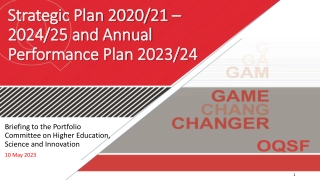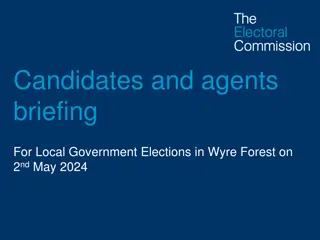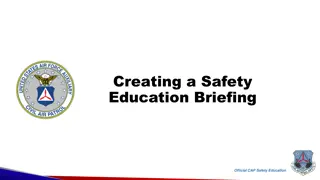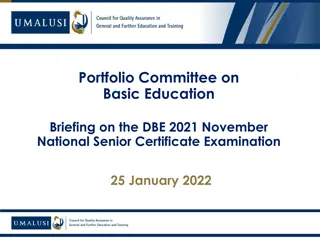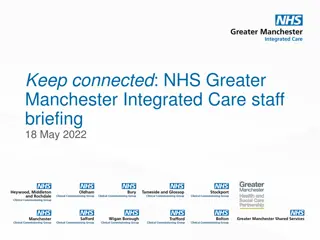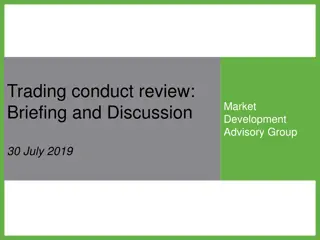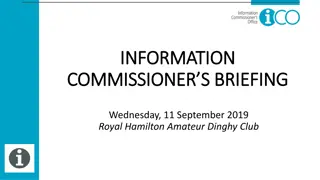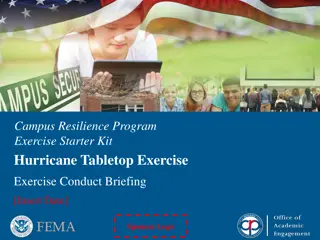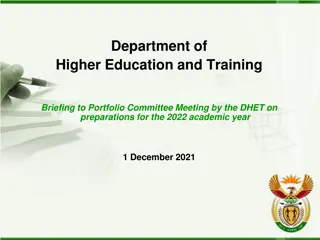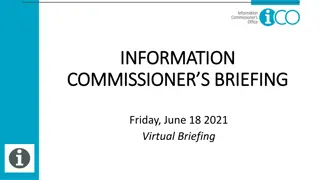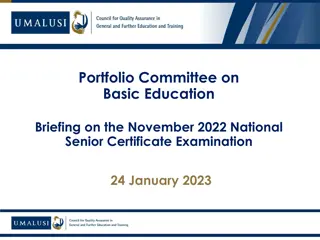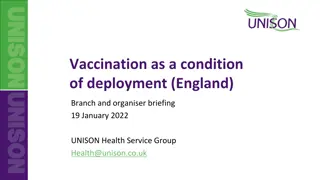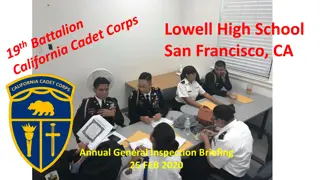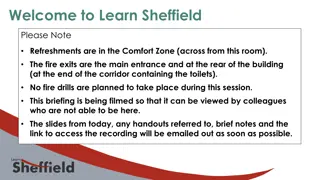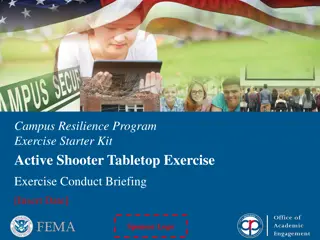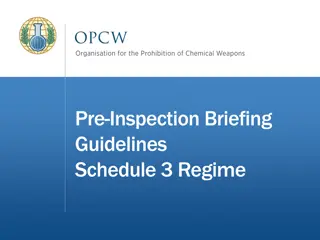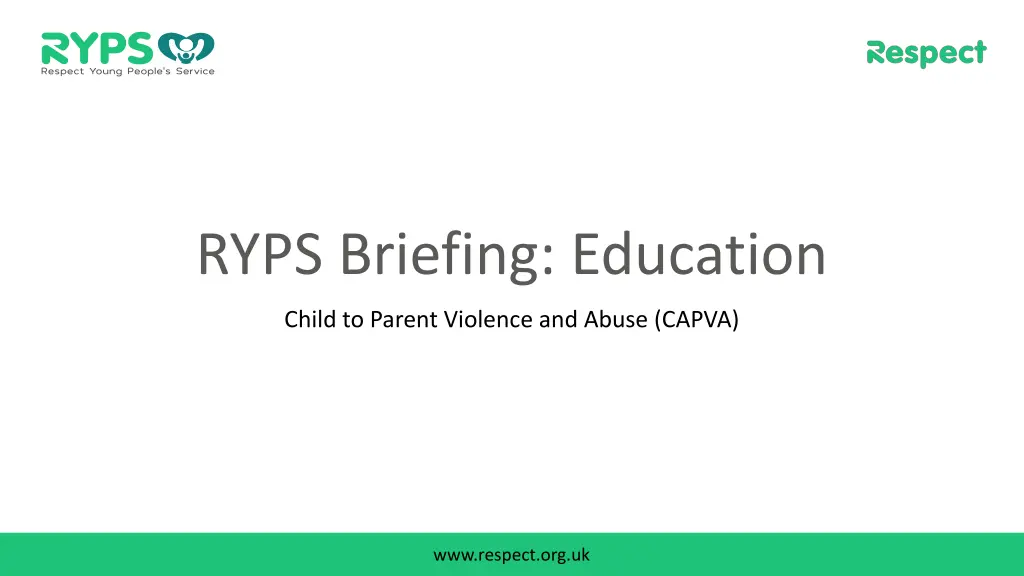
Understand Child-to-Parent Violence: Education and Support
Learn about Child-to-Parent Violence and Abuse (CAPVA) through Respect's resources. Discover the causes, effects, and steps to address CAPVA, supporting professionals and families in handling abusive behaviors. Gain insights into identifying and defining CAPVA, speaking to parents about it, and taking necessary actions. Join Respect's mission to stop domestic abuse at its roots.
Download Presentation

Please find below an Image/Link to download the presentation.
The content on the website is provided AS IS for your information and personal use only. It may not be sold, licensed, or shared on other websites without obtaining consent from the author. If you encounter any issues during the download, it is possible that the publisher has removed the file from their server.
You are allowed to download the files provided on this website for personal or commercial use, subject to the condition that they are used lawfully. All files are the property of their respective owners.
The content on the website is provided AS IS for your information and personal use only. It may not be sold, licensed, or shared on other websites without obtaining consent from the author.
E N D
Presentation Transcript
RYPS Briefing: Education Child to Parent Violence and Abuse (CAPVA) www.respect.org.uk
About us Respect is the UK charity stopping perpetrators of domestic abuse. Our focus Respect was founded to focus on perpetrators of domestic abuse and this, including our vital work with young people who cause harm, remains our key priority. Our work with male victims will continue as an important, distinct, project. www.respect.org.uk
Respect Young Peoples Service Supporting professionals working with young people and their families where a young person is engaging in abusive behaviour towards parents or carers and/or towards an intimate partner. www.respect.org.uk
Learning Outcomes 1. To be able to identify and define CAPVA 2. To have a better understanding of the causes, effects and risks of CAPVA 3. To be more confident speaking to parents about CAPVA 4. To know what steps to take if CAPVA is identified www.respect.org.uk
Definition of CAPVA Respect use the term Child and Adolescent to Parent Violence and Abuse (CAPVA) to describe the dynamic where a young person (8 years -18 years) engages in abusive behaviour* towards a parent or adult Respect use the term Child and Adolescent to Parent Violence and Abuse (CAPVA) to describe the dynamic where a young person (8 years -18 years) engages in abusive behaviour* towards a parent or adult carer where the abusive behaviour is harmful and repeated. carer where the abusive behaviour is harmful and repeated. *By abusive behaviour we mean more than physical violence, but including emotional, coercive, or controlling behaviour, sexual abuse, and economic abuse. *By abusive behaviour we mean more than physical violence, but including emotional, coercive, or controlling behaviour, sexual abuse, and economic abuse. www.respect.org.uk
What does CAPVA look like? Physical Damage to property Emotional /psychological Financial Yelling, screaming, swearing, putdowns, humiliation, verbal intimidation, mind games, threats to kill you or self, run away, hurt others. Demanding things parents can t afford, stealing, incurring debts Pushing, hitting, slapping, kicking, throwing objects, spitting Breaking possessions, holes in the wall www.respect.org.uk
Statistics/ prevalence www.respect.org.uk www.respect.uk.net
1. CAPVA is most commonly reported when the child is? A C 14-16 10-12 B D 12-14 16+ www.respect.org.uk
3. CAPVA is most commonly reported when the child is? A C 14-16 10-12 B D 12-14 16+ www.respect.org.uk
2. More women than men are victims of CAPVA? A C True B False www.respect.org.uk
2. More women than men are victims of CAPVA? A C True B False www.respect.org.uk
3. Police reports of CAPVA stayed roughly the same over a 3 year period? A C True B False www.respect.org.uk
3. Police reports of CAPVA have stayed roughly the same over the last 5 years? A C True B False www.respect.org.uk
Impact of lockdown 70% of parents reported an increase in violent episodes during lockdown 69% of practitioners said they had seen an increase in referrals for families experiencing C/APV 64% of practitioners identified that the severity or incidence of violence had increased www.respect.org.uk
Impact of lockdown Reasons for this: Spatial confinement and coerced proximity. Changes in structure and routine. Fear and anxiety. Lack of access to formal and informal support www.respect.org.uk
www.respect.org.uk www.respect.uk.net
Contributing factors Domestic abuse Bereavement Autism www.respect.org.uk www.respect.uk.net
The Entitlement Discussion Eddie Gallagher: Most violent behaviour occurs because the initiator has an inflated sense of entitlement to power which is greater than their sense of responsibility for the welfare of the other person www.respect.org.uk
CAPVA and SEND www.respect.org.uk
Neurodiversity RYPP CAPVA sample 2021: 57% neurodiverse/ developmental difficulties Significantly higher than the prevalence in general population www.respect.org.uk
Neurodiversity and the RYPP The RYPP completion rate for young people with ASD and ADHD in 2017 group was 73%; higher than the average. www.respect.org.uk
CAPVA and young people who have additional needs Debate around intent but harm is comparable. Violence can be functional if not premeditated e.g. child allowed to leave a classroom Can be proactive or reactive explosions Professionals need to risk assess impact not minimize Parents and SEND children can be supported to reduce violence www.respect.org.uk
Lived Experience www.respect.org.uk
Lived experience of the child 2021 Respect research indicates the children often feel unloved and uncared for. They have low self -worth and feel siblings are favoured in comparison. They find it hard to get on with peers and are often bullied or harmful to others. They are likely to be experiencing parental conflict or post separation parental domestic abuse Around a third have poor school attendance They live in a negative feedback loop of abusive behaviour remorse/shame- lack of parental warmth and nurture and further reduced self- esteem. www.respect.org.uk
Lived experience of the parent Feel disempowered and to blame for what s happening Feel ashamed which further decreases ability to restore power dynamic Is often (not always) still experiencing abuse from the estranged parent Feels frightened of their child Lives in a cycle of feeling the child is better off in care/ with someone else and when crisis is averted misses the child and feels further ashamed that they ve rejected them. www.respect.org.uk
Group task 1. How does CAPVA differ from Domestic Abuse in the adult world? 2. What stops parents reporting? www.respect.org.uk
Risk and safeguarding www.respect.org.uk
Group task 1. What indicators/ warning signs of CAPVA might you notice? (children and parents) 2. What questions could you ask a parent if you are concerned about CAPVA? www.respect.org.uk
Warning Signs Does the parent seem reluctant to talk about their child s behaviour in the home? Does the parent ask you not to tell the child they have spoken with you? Does the child have low school attendance? Does the child self harm or risk take? Does the child find it hard to make friends? Has the parent sustained an injury and is reluctant to say what happened? Is there damage in the home, locks on the doors? Are there signs of financial abuse? Are there concerns around child sexual exploitation or child criminal exploitation? www.respect.org.uk
Partnering with parents: approaching the issue Listen to the parent Do not judge or blame- be careful not to use language that may minimise their experience or sound judgemental Do not tell the child what has been disclosed Reassure them that you believe them Naming the problem- help parents to understand that what they are experiencing is abusive Ask them what they would like to happen next Explain the safeguarding procedure you will follow and gain consent if safe to do so. www.respect.org.uk
How to respond Specialist support in place- multiagency working Safeguarding referral made Conversation with parent Identified CAPVA Refer to DSL www.respect.org.uk
Risk factors in child-to-parent violence Frequency severity and recency of previous violent acts. Has physical injury been caused? Is the nature of the violence escalating? Has there been previous use of weapons? YP intoxicated, psychotic, very anxious, depressed YP has feelings of being out of control when angry YP has a violent/criminal peer group YP carries a knife or other weapon outside the home www.respect.org.uk
Safeguarding Vulnerable child/vulnerable adult Harm to siblings must be considered www.respect.org.uk
Support for CYP using harmful behaviour Agreed expectations with support worker/ parents- work together to provide clear consistent boundaries Taking part in multi agency meetings to support the family Providing a room/ space for sessions with RYPP workers Communication with parents to support work e.g. family agreements, transitions between home and school Time out agreement at school 1:1 support such as Learning Mentor School Buddy. Making changes to school routine. Letting the child know you are aware but no- one else. Teaching de-escalation techniques/ emotional regulation Ensure they know who they can talk to if needed. www.respect.org.uk
Support for siblings in school Let them know who they can talk to if needed. Flexibility with school rules. Different expectations in relation to their behaviour and work output. Inform class teacher with minimal information. Checking collection arrangements at end of school day. Having staff presence as a form of support throughout the day Meeting physical needs, i.e. breakfast, lunch, provision of school uniform. 1:1 support such as Learning Mentor Working elsewhere or doing a different activity/ not working at all. School Buddy. Making changes to school routine. Letting the child know you are aware but no- one else. Assessment of health/emotional wellbeing. www.respect.org.uk
Refer for advice/ support Durham Pathway 03000 267979 Front door for advice DSL www.respect.org.uk
The RYPP intervention 18 Sessions delivered over 12 weeks, based on approximately: 7 sessions with parents 9 sessions with YP 2 family sessions 1 exit / closure session Fits with Restorative Justice Council Quality Mark and the emerging APV Standards
Evaluation www.respect.org.uk
Questions? www.respect.org.uk


